“My band and crew hadn’t worked in three years so we plowed on – eight epidurals later and 180 opium tablets, I made it through the tour”: Blackie Lawless on touring, talking solos with David Gilmour – and that time W.A.S.P. bought 52 Marshall heads
He recalls scavenging Marshalls from Ted Nugent, explains why he still records to tape, and reveals what he’s discovered about his band’s early days that he didn’t know at the time
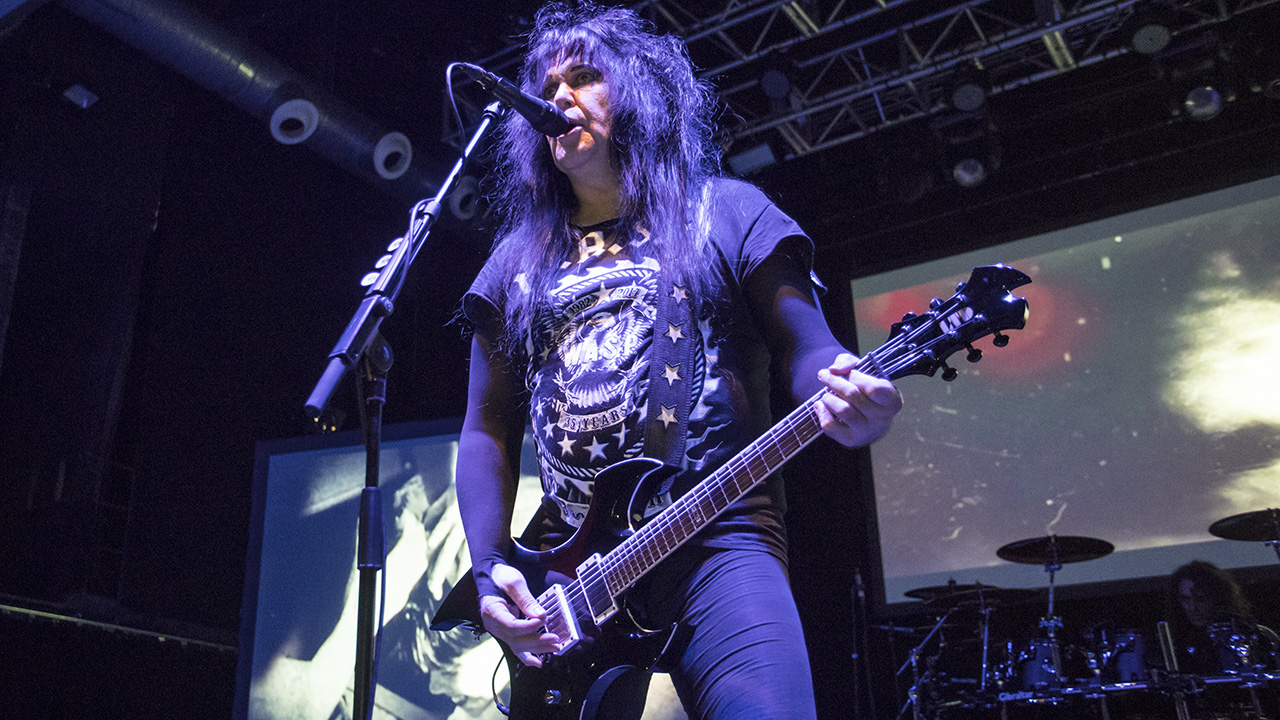
In 1984, while Eddie Van Halen was merging synths and solos on Jump, Iron Maiden were on their World Slavery Tour and Kiss were going through three lead guitarists, W.A.S.P. were slinging hunks of raw meat at audiences across Los Angeles.
Stories of maggot-infested guitars and razor-kissed shows build a mythology around their 1984 self-titled debut – but not everyone got it.
“As great as that record was received, it still took most of the journalists a couple of years to really understand what it was,” leader Blackie Lawless tells Guitar World. “We learned the hard way that whenever you put sight and sound together, the sight element will usually win out. It’s a human characteristic.”
Before long, songs like Animal (Fuck Like a Beast) struck fear in the hearts of parents across the globe. Lawless now gets it, though it took him time. “We had a pretty dark sense of humor. We thought that stuff was hysterical. What we didn’t understand at the time was our own anger as people.”
Time heals all wounds: as he prepares for a 40-date tour to mark the record’s 40th anniversary, Lawless is notably nostalgic when asked what it means to him.
“The totality of it, and the capturing of the spirit of the time – all great rock bands should have snapshots of their era, and what it sounded and felt like. I really believe that record accomplished what we wanted it to do.”
There’s no denying that despite its brief nature, W.A.S.P.’s original lineup stands out; and Lawless agrees. “There’s a romance to anything that worked,” he says. “I would be less than honest if I didn’t tell you that. They always say you never forget your first love; if nothing else, you look back and say, ‘We did that. Nobody helped us.’
Get The Pick Newsletter
All the latest guitar news, interviews, lessons, reviews, deals and more, direct to your inbox!
“It’s a great feeling. I don’t care how great your show is; if you don’t have tunes to back it up, you’ve got nothing. But if you can put sight and sound together, that’s a dangerous combination.”
You came off the road last year with some serious back issues. Where are you at physically?
“A chiropractor in Spain ruptured a disc in my back. He was told specifically not to do a particular movement. He did it anyway because he didn’t speak any English. There was talk about a communication breakdown with the interpreter, but he screwed me up really bad.
“It got progressively worse over the tour, and we went to Berlin to meet with doctors who handled the German Olympic team. They told me, ‘If you don’t stop the tour right now and go home, it’s going to get worse.’”
But you didn’t stop.
“I thought, ‘What am I supposed to do? My band and crew haven’t worked in three years because of Covid, so am I now going to tell them, “We’re going home, guys, because I don’t feel good”?’ So we plowed on – eight epidurals later and 180 opium tablets, I made it through the tour.
“But we’re getting up to speed now. I’ve never had a problem with my back before but I can sympathize with people who have had that issue. I’ve been in therapy, and it’s been pretty intensive. I’m doing good.”
W.A.S.P. is heading out on tour soon, and you’ve got something special planned, right?
“We’re going to do the first album in its entirety from beginning to end. Then we’ll take a small break and come back, and we’ll do our best-of set in the second half. The first half of the show will look like a combination of what the first album looked like and what the first tour looked like, because most people didn’t see it at the time.”
But it isn’t just a trip down memory lane, is it?
“I’m trying to create an environment. I don’t want people going down memory lane – I want them to walk into the room and feel like it’s 1984. If you’re familiar with what the first album looks like, there’s going to be a portion of the show where the album cover literally comes alive. It’s an outrageous stunt. When people see it they’re going to freak.”
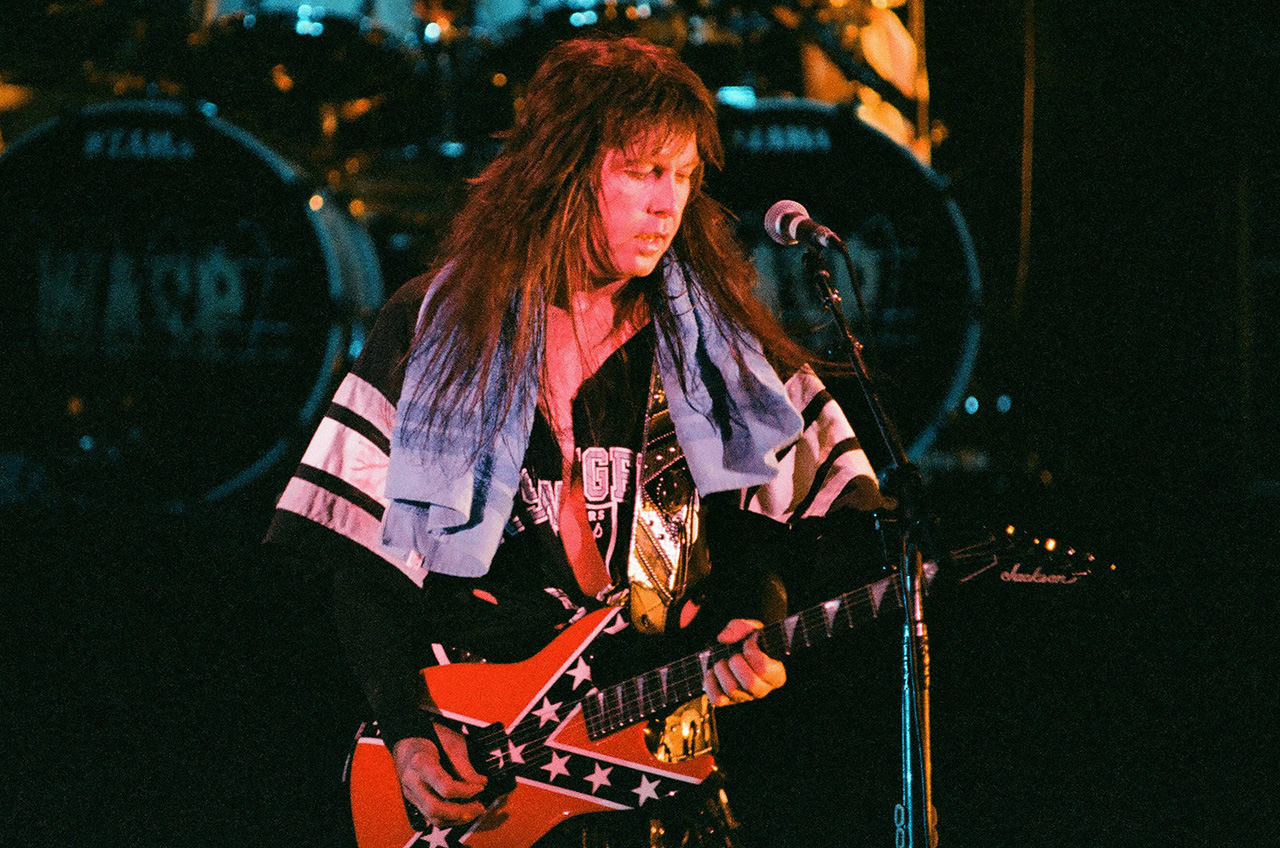
The consensus is that W.A.S.P.’s debut was a defining moment in rock. When you were putting that album together, did you feel good about it?
“We thought the songs were pretty good. But you’ve got to remember, when we originally started we never intended to play live. I know that’s hard for people to understand; but the intention was to make a demo tape, shop it around, and see what happened.”
Why didn’t you intend to play live?
“Being in Los Angeles, we knew you didn’t get a record deal by playing live. You had to show what the record was going to be because those guys were in the business of selling records. It made sense, and we thought we made the best demo tape that we could. The vast majority of what was on the demo ended up being the first album.”
it’s hard to play tight when standing still, and it’s 10 times harder when you’re jumping around three feet in the air
That’s ironic, as the outrageous live show gave W.A.S.P. critical exposure.
“Well, we were shopping the demo around, and about six weeks ago by and we weren’t getting any responses. We thought, ‘Maybe we’ll take this stuff out, play it live and see what happens… We think these songs are pretty good; let's see what the audience’s reaction is.’
“After the idea of playing live came up, we said, ‘Are we going to stand there and play these songs and stare at each other? Or are we doing something to entertain ourselves?’ That’s where the show came from.”
The side effect was that people stopped thinking about the music.
“When we went to Europe on the first tour, the journalists would come in for a 30-minute interview, and for 25 minutes they’d be talking about the show. I’d go, ‘Okay, I get it – but we have this record that we’d like to talk about for a minute.’ We learned that people will listen with their eyes, not their ears.
“I’d tell the journalists, ‘Yes, we’re doing this show, and it’s outrageous, but this record has to stand on its own.’ They’d go, ‘Uh-huh, uh-huh,’ but they weren’t getting it.”
Do you think the stage show was impacting listeners negatively?
“I went into a club and the video for Live at the Lyceum was playing. I hadn't seen it since we'd done it five years earlier, and we were making the Headless Children record. By that time, you’re already a different person. I walked in, saw the video, and I was stunned. I couldn’t believe what I was seeing.
“The ferocity that was coming out of us as a band… I could see for the first time what was freaking people out, and what got the PMRC all agitated, and all those groups that came after us. But when you’re doing it at the time you’re just being yourself. You don't really understand the impact that it’s having on people.”
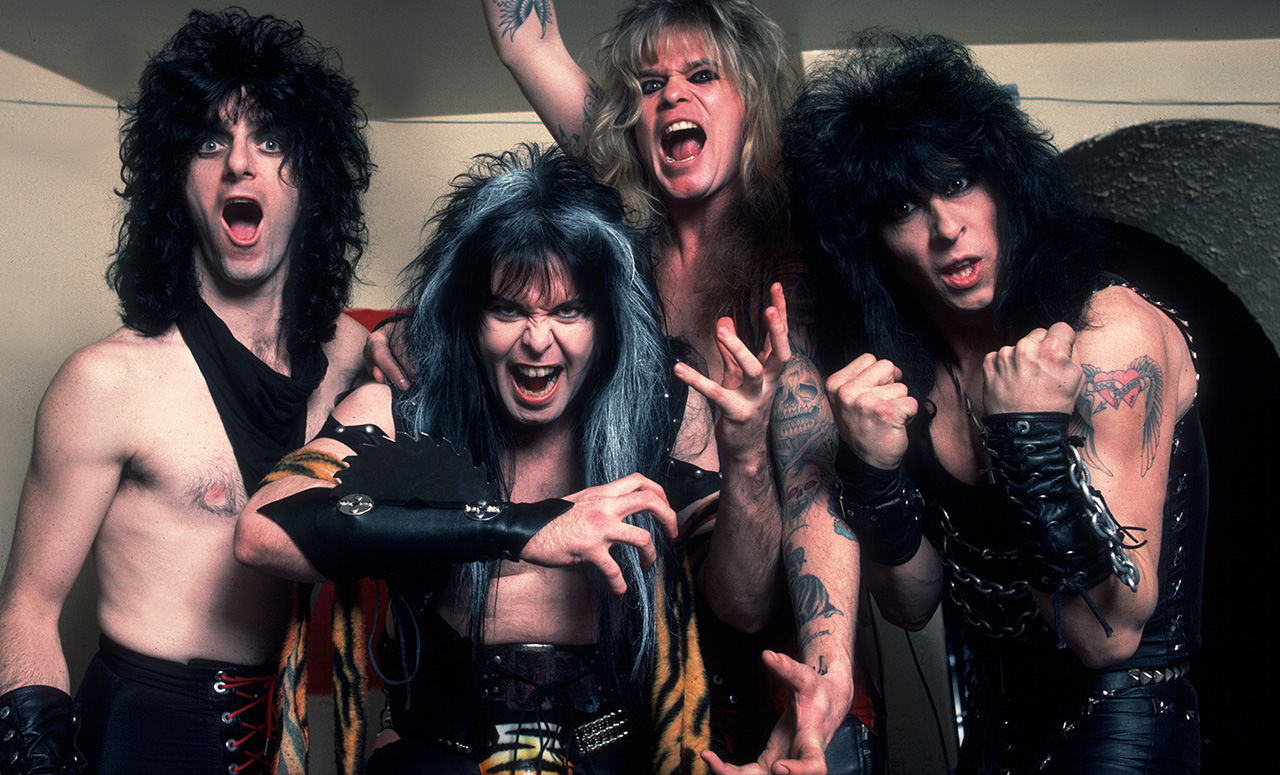
When you’re hurling raw meat at the audience and recreating torture scenes, it does make it hard for people to pay attention to the music.
“I can’t understand why!”
It gave you notoriety, but what often gets lost is the musicianship was a cut above.
“That’s something we took pride in. We wanted to be a band that could hit the same chord at the same time. That may sound elementary, but it’s hard to play tight when standing still, and it’s 10 times harder when you’re jumping around three feet in the air.”
There was a viciousness to those amps; the guitars have that crack you won’t get unless you push air
You played bass on W.A.S.P.'s first record, but as you play guitar now, would you change the way Chris Holmes and Randy Piper handled the guitars?
“I’m a guitar player by trade, but the problem was that with the three of us, we were three guitar players. We didn’t have a bass player, and with the egos of those two other guys, I knew they were never going to play bass! So I volunteered.
“Looking back on it – and I’ve been listening to the record a lot for the tour – I have a lot of appreciation for how well both Randy and Chris did. They did a great job. I’m a stickler for tightness and making sure things are in tune, and honestly, I don’t think I could have done it any better.
“I think I can speak for all of us – whatever personal differences we might have, when those lights go up and it comes time to do what you do, everybody’s on the same page, pulling on the same end of the rope at the same time.
“More than anything – and I didn’t appreciate this at the time – when you listen to that first record, that was an angry record done by an angry band. We were pissed off at the world because we couldn’t get where we wanted to go. More than anything there was a bond between us that really lent itself to getting there. Everybody was going in the same direction at the same time.
“I don’t think any band – especially in the beginning – can do anything of real merit unless everybody is going in the same direction.”
You three created some awesome guitar sounds. How did you do it?
“Guitar- and bass-wise, it was all natural. Even today, when we make records, we still make them on tape. There’s all kinds of modelers and stuff that emulates tones, but I’m not a fan of those things. They’re great for enhancing – but if you want the real deal, you go to the source.”
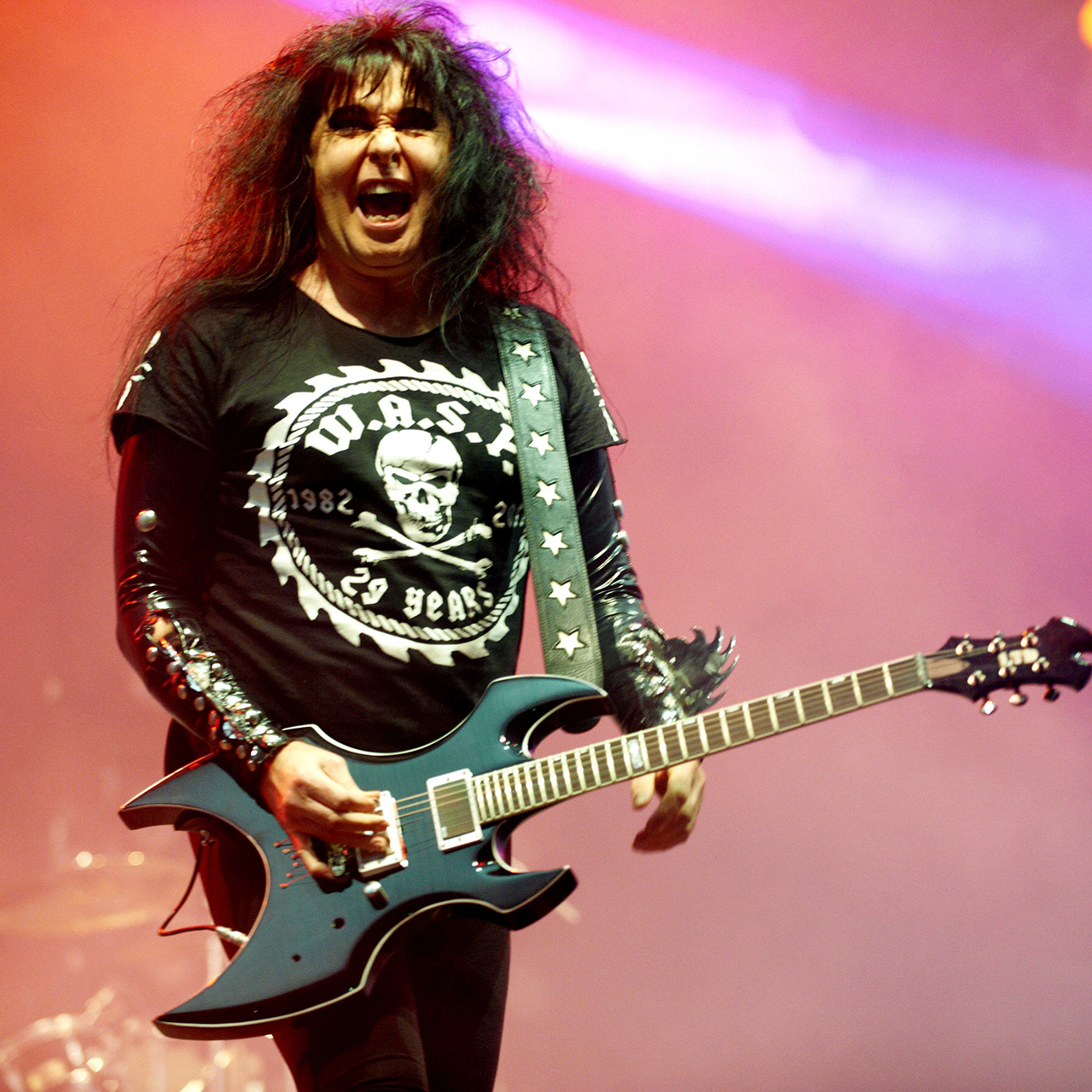
So, just guitars plugged into a dimed Marshall?
“When we went on our first tour, we went on a scavenger hunt. Over two years, we bought 52 different Marshall heads. We bought 13 of those from Ted Nugent when we were touring with him and because he was going back to Fender. I’ve got about three originals left.
“There was a viciousness to those amps; the guitars have that crack you won’t get unless you push air. It’s important to understand that when you make those speakers flex, you feel it when you’re playing. Man, it adds up to the totality of what it’s going to sound like.”
If somebody had a good idea, that’s the idea we went with. We didn’t care who it came from
What other gear are you bringing out on the road?
“I’m going back to using B.C. Rich again. Those have always been a favorite. I don’t use any effects except for some delay. You’ve got to get it from the source. And for me, it’s not even the guitars – it’s the pickups. If the pickups are right for your style, and you have the right amps and speakers… I mean, I still use old Greenbacks. All those old tones are tried and true. They work.”
Since you’re a guitar player by trade, what was your approach to bass back then?
“I’ve heard other guitar players say they approach guitars like being a singer. My favorite guitar player is David Gilmour. We were at an EMI dinner one night and he was there. I started talking to him and said, ‘By far, you’re my favorite guitar player. How do you come up with those melodies?’
“He goes, ‘I’m a singer. I think like a singer.’ I was standing there and thought, ‘Duh!’ In other words, if you’re looking for a melody, it’s about what enhances the song. I subscribe to that theory – it can’t not give you an advantage because you’re just thinking differently.”
The credits show you wrote most of the songs, but did you write the solos too? Or were Chris and Randy free to come up with their parts?
“On the first record we had the better part of a year to get all that worked out. In rehearsals we’d make changes here and there; just little improvements. That was all done by committee – if somebody had a good idea, that’s the idea we went with. We didn’t care who it came from. The best idea is the one that’s going to win out.”
Rock ’n’ roll was never meant to be perfect. And even if you try, it ain’t gonna be
A recent revelation is that you’re okay with using backing tracks live. What will fans be hearing at the W.A.S.P. shows?
“It’s because we don’t have the personnel. We were doing stuff from The Crimson Idol, and there’s a 100-piece orchestra going on there; taking that on tour would be impossible financially.
“The first time we did Crimson Idol live, we did it without the orchestration. Did it sound good? Yeah. But when we did it with the orchestration, I stood in the middle of the room in rehearsal, and I swear to you, it was like a religious experience. I thought to myself, ‘If I’m a fan, this is what I want to hear.’
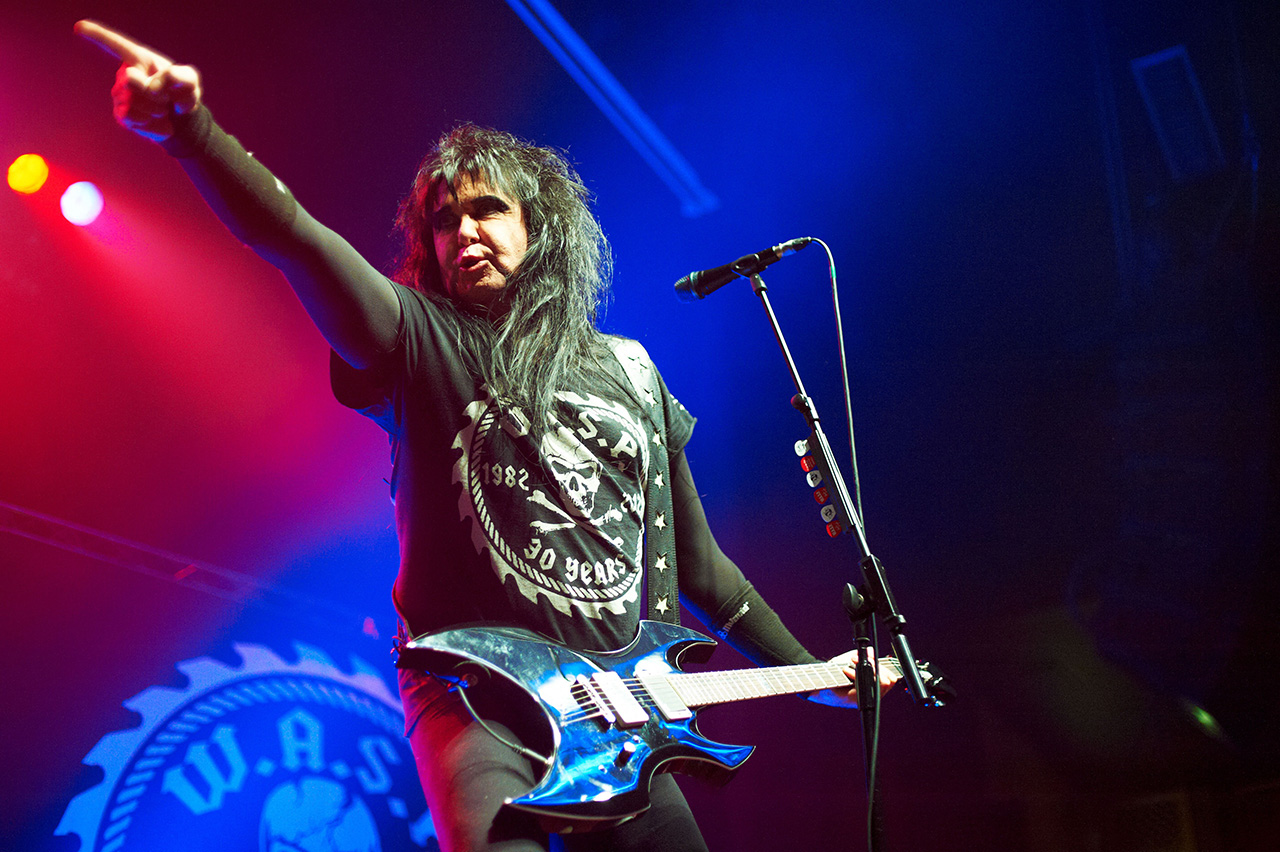
“So that’s the reason I do it. It enhances the experience. I want people to hear the records the way they were intended to be heard, not like a facsimile version.”
That’s fair. People assumed it was your voice and the guitars being simulated with tracks.
“All somebody has to do is record it and listen to all the mistakes! Then they would understand. You can try as hard as you can, man, but you’re gonna screw up. Rock ’n’ roll was never meant to be perfect. And even if you try, it ain’t gonna be.”
Beyond the tour, is W.A.S.P. working on new music?
“We’re getting ready to go out and be the stinkiest, nastiest rock ’n’ roll band in the world. There’s new stuff in the pipeline – but like I said, the live show right now is what we’re concentrating on the most.”
- W.A.S.P.’s tour opens on October 26 and ends on December 14.
Andrew Daly is an iced-coffee-addicted, oddball Telecaster-playing, alfredo pasta-loving journalist from Long Island, NY, who, in addition to being a contributing writer for Guitar World, scribes for Bass Player, Guitar Player, Guitarist, and MusicRadar. Andrew has interviewed favorites like Ace Frehley, Johnny Marr, Vito Bratta, Bruce Kulick, Joe Perry, Brad Whitford, Tom Morello, Rich Robinson, and Paul Stanley, while his all-time favorite (rhythm player), Keith Richards, continues to elude him.





![[from left] George Harrison with his Gretsch Country Gentleman, Norman Harris of Norman's Rare Guitars holds a gold-top Les Paul, John Fogerty with his legendary 1969 Rickenbacker](https://cdn.mos.cms.futurecdn.net/TuH3nuhn9etqjdn5sy4ntW.jpg)







